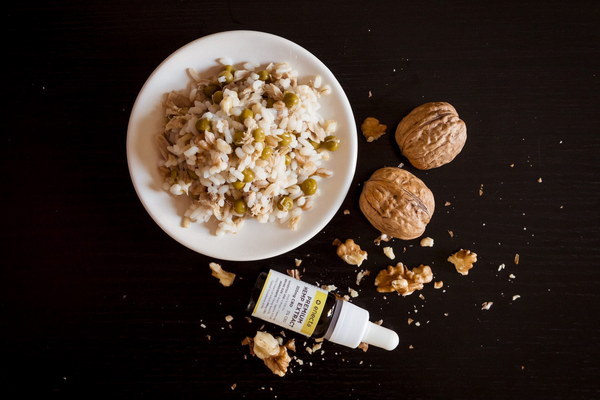Optimizing Wellness Nurturing Your Health with Liver Cirrhosis
Liver cirrhosis is a chronic condition that requires careful management and attention to one's lifestyle. Nurturing your health is crucial for those with cirrhosis to slow down the progression of the disease and improve their quality of life. In this article, we will discuss how to focus on wellness when living with liver cirrhosis.

1. Diet and Nutrition
A balanced and well-planned diet is essential for individuals with liver cirrhosis. The following tips can help maintain liver health:
a. Limit Alcohol: Avoid alcohol consumption as it can worsen liver damage. If you have a history of heavy drinking, it's essential to quit immediately.
b. Reduce Salt Intake: Excess salt can lead to fluid retention and swelling. Aim for a low-sodium diet to prevent these complications.
c. Choose Lean Proteins: Incorporate lean proteins such as fish, poultry, and tofu into your diet to support liver function.
d. Consume a Variety of Vegetables and Fruits: These foods provide essential nutrients and fiber, which can help reduce inflammation and improve digestion.
e. Maintain a Healthy Weight: Obesity can exacerbate liver cirrhosis. Aim for a healthy weight through a combination of diet and exercise.
2. Hydration
Proper hydration is crucial for liver health. Drink plenty of water throughout the day to maintain kidney function and help flush out toxins from the body.
3. Regular Exercise
Engaging in regular exercise can help improve liver function and overall health. Consult with your healthcare provider before starting any exercise regimen, especially if you have other health conditions. Aim for moderate-intensity activities such as walking, swimming, or cycling for at least 30 minutes a day.
4. Manage Chronic Conditions
Chronic conditions like diabetes, high blood pressure, and heart disease can exacerbate liver cirrhosis. Work with your healthcare provider to manage these conditions effectively.
5. Avoid Risky Behaviors
Avoid behaviors that can worsen liver damage, such as:
a. Smoking: Smoking can increase the risk of liver disease and slow down the healing process.
b. Drug and Medication Abuse: Certain drugs and medications can harm the liver. Always consult with your healthcare provider before taking new medications.
c. Contact with Toxins: Minimize exposure to toxic substances such as lead, mercury, and certain cleaning agents.
6. Mental Health
Living with liver cirrhosis can be challenging. It's essential to address mental health concerns to maintain overall well-being. Consider the following:
a. Seek Support: Joining a support group or talking to a therapist can help you cope with the emotional challenges of living with liver cirrhosis.
b. Practice Stress-Relief Techniques: Activities like meditation, yoga, and deep breathing exercises can help reduce stress and improve mental health.
7. Regular Check-ups
Schedule regular appointments with your healthcare provider to monitor your liver function and overall health. Your provider can offer guidance on how to manage your condition effectively and identify any potential complications early.
In conclusion, focusing on wellness is vital for individuals with liver cirrhosis. By adopting a balanced diet, staying hydrated, engaging in regular exercise, managing chronic conditions, avoiding risky behaviors, addressing mental health concerns, and maintaining regular check-ups, you can improve your quality of life and slow down the progression of the disease. Remember, taking care of your health is an ongoing process, and it's essential to work closely with your healthcare provider to make informed decisions about your treatment and lifestyle choices.









